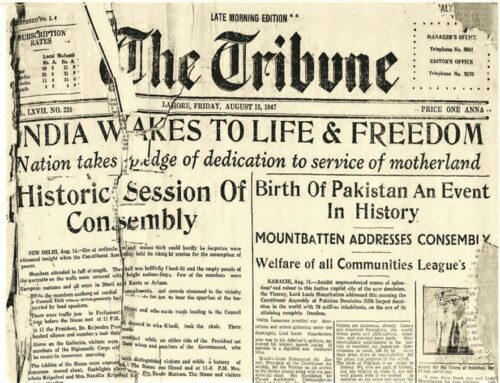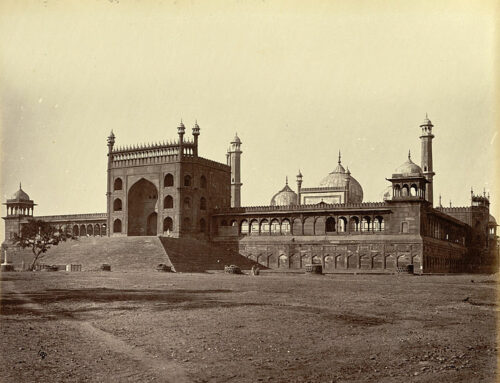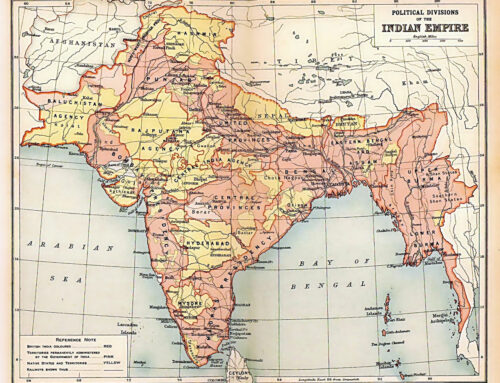Translated by Zameelur Rahman
What becomes evident from studying the rules of the Shari’ah on politics, and what is mentioned in the Qur’an and Sunnah on this subject, is that Islam does not specify a particular “form of government” in the technical sense this phrase is used today, and it does not specify for it a particular methodology with all its particular details. It only provided us with basic foundations and principles, and general laws that must be observed and preserved in every age and place. As for the particular details in organising the government, the Islamic nation is given the option to choose of them what is appropriate for its [prevailing] conditions in every age and country, with the condition that in all of this it adheres to the foundations, principles and rules which Islam has legislated in the Qur’an and Sunnah and in the example of the rightly guided caliphs.
Hence, the system of government in Islam adheres to these foundations, principles and rules and it does not adhere to a particular form [of government] or a specific methodology. We wish here to summarise those principles and foundational rules. And Allah Most High grants success.
(1) Rule belongs only to Allah
The first principle from the principles of political rules in Islam is that true authority in this cosmos belongs only to Allah Most High and He is the Wisest of Rulers. Based on this principle, it is not permissible to produce a law that conflicts with the rules of Allah Most High explained in the Noble Qur’an and the Purified Prophetic Sunnah, nor produce a rule or commandment except that which agrees with the law of Allah which He legislated for His servants.
Indeed this principle is the one that distinguishes the Islamic political system from all others like democracy and dictatorship, since democracy consigns authority to the people without any restriction and dictatorship consigns it to the ruler who is not subject to another authority in his actions.
On the other hand, the authority of the ruler in Islam is conditional upon his adherence to the Qur’an and Sunnah to the degree that it is not obligatory on the people to follow him if he commands a sin.
(2) Appointing the Imam is consigned to the election of the Ahl al-Hall wa ‘l-‘Aqd
Appointing the caliph or Imam in Islam is from [the responsibility] of the Ahl al-Hall wa l-‘Aqd (lit. those who untie and tie i.e. the leading scholars of the law). Thus, the caliphate is not an heirloom as in a monarchy, nor based on the foundation of military power as in a fascist dictatorship, nor relegated to the opinion of ignorant and foolish people as in modern democracy, and it is consigned only to the people of expertise, experience and practice who possess intelligence and [good] opinion in societal affairs. Our master ‘Umar ibn al-Khattab (Allah be pleased with him) said,
Whoever gives the pledge of allegiance to anybody among you without consulting the other Muslims, neither that person, nor the person to whom the pledge of allegiance was given, are to be supported, lest they both should be killed.
Al-Bukhari transmitted it in Bab Rajm al-Hubla min al-Zina. And he (Allah be pleased with him) said,
Indeed I knew that people would say: the caliphate of Abu Bakr was sudden, and indeed it was sudden, but Allah protected [the people] from its evil. Indeed there is no caliphate without consultation.
Ibn Abi Shaybah transmitted it in his Musannaf (14:523), Kitab al-Maghazi, Bab ma ja’a fi Khilafati Abi Bakr.
(3) It is necessary that the ruler be just
The third principle from these principles is that the ruler who is given authority over the people, by right of his being the caliph, is obligated thereby to fulfill the qualities required by that [profession] and, according to what al-Mawardi mentioned, they are seven:
First, justice with [all] its inclusive conditions; second, knowledge amounting to independent judgement (ijtihad) in judicial cases (nawazil) and laws (ahkam); third, soundness of the senses including hearing, listening and speech, so the pursuit of what is perceived through them is thereby sound; fourth, soundness of the limbs from deficiencies [that] prevent full movement and speedy rising; fifth, [sound] opinion leading to [proper] governance of the subjects and planning for [their] welfare; sixth, bravery and succour amounting to the protection of the territory [of Islam] and fighting the enemy; seventh, lineage, and that is that he is from Quraysh [1]Controversy surrounding this last condition is discussed later in the book under the commentary of the relevant hadith, See “coming soon“. (Al-Ahkam al-Sultaniyyah p. 6)
Indeed most of the republics today do not make it a condition for the prime minister or president of their state that qualities determined by [the level of] knowledge and justice be found in him, so in this system there is nothing preventing the election of ignorant iniquitous depraved individuals as presidents of the state. As for Islam, it is obligatory on the Ahl al-Hall wa l-‘Aqd to elect one who fulfils these conditions.
(4) Rule is a responsibility not a right
From the foundational principles of politics in the Shari’ah is that rule and authority is a responsibility, not a right by means of which a man seeks its material benefits. It is but an important trust in the hand of the ruler and a momentous responsibility on his neck. Allah Most High alludes to this in His statement,
Allah doth command you to render back your trusts to those to whom they are due. (Qur’an 4:58)
The Messenger of Allah (Allah bless him and grant him peace) said to Abu Dharr (Allah be pleased with him),
O Abu Dharr! Thou art weak and [authority] is a trust, and on the Day of Resurrection it is [a cause of] humiliation and remorse except for one who fulfills its obligations and discharges the duties attendant thereon.
This is to come from Muslim in Bab Karahati l-Imarati li ghayri Dururah
(5) Rule is not given to one who requests it for himself
[Based] on this foundation, the Shari’ah of Islam stipulates that rule is not given to one who demands it for himself due to what is to come from the compiler (Allah have mercy on him) of the hadith of ‘Abd al-Rahman ibn Samurah [that] he said:
Allah’s Messenger (Allah bless him and grant him peace) said to me, “O ‘Abd al-Rahman! Do not ask for authority, for if you are granted [authority] as a result of your asking for it, you will be left alone, and if you are granted it without making any request for it, you will be helped”.
Muslim also transmitted from Abu Musa (Allah be pleased with him) [that] he said:
Two of my cousins and I entered upon the Prophet (Allah bless him and grant him peace). One of them said: “O Messenger of Allah (Allah bless him and grant him peace)! Appoint us rulers of some [lands] that Allah Most High has entrusted to thee.” The other also said something similar. He said, “By Allah, we do not appoint to this position one who asks for it, nor anyone who is covetous for it.”
(6) Consultation and the obligation of consultation
It is obligatory for the Imam to consult the Ahl al-Hall wa l-‘Aqd on the important affairs which have no [decisive] texts in [reference to] them. This consultation is obligatory by the imperative of His statement (Most High) “and consult them in affairs” (Qur’an 3:159) to [the extent that] some fuqaha mentioned that if he abandoned consultation, he is deserving of separation. Ibn ‘Atiyyah said, “Indeed consultation is from the foundations of the Shari’ah and the resolutions of the laws, and one who does not seek consultation of the people of knowledge and religion, separation from him is necessary. There is no dispute in this.” Abu Hayyan (Allah have mercy on him) transmitted this in al-Bahr al-Muhit (3:99).
Moreover, if the opinions of the people of consultation differed from the opinion of the Imam, does the Imam act on his own opinion or the opinion of the people of consultation? The majority of the classical ‘ulama believe that after recognition of the opinions of the people of consultation, the Imam acts on the conclusion reached by his [own] reflection even if that opposes the view of the people of consultation. According to them, consultation is only [required] in order that all options on the matter are disclosed to the Imam by [means of] discussion and an exchange of ideas since [certain] perspectives hidden to a man are apparent to another. So once everyone has voiced their opinion, all perspectives become clear and it is made easy for the Imam to reach a divisive view in this [matter]. The meaning of this consultation according to them is not that the Imam adheres to the opinion of the people of consultation.
They adduce as proof for this His statement (Most High), “And consult them in affairs. And when thou [masculine singular] art resolved, then put thy trust in Allah.” (Qur’an 3:159), since it proves that the resolve after consultation is the resolve of the Imam [alone] and if it was obligatory on him to follow the people of consultation it would say “when thou [masculine plural] art resolved” and since the resolve has been authorised to the Imam [alone] it is evident that the right of decision [making] belongs to the Imam after consultation.
Some contemporary ‘ulama and authors have opined that the Imam must adhere to what the people of consultation conclude by their agreement or the preponderance of their opinions. They adduce as proof for this what Ibn Mardawayh transmitted from ‘Ali ibn Abi Talib (Allah be pleased with him) [that] he said,
Allah’s Messenger (Allah bless him and grant him peace) was asked about “resolve” [mentioned in the verse] and he said, “consulting the people of opinion then following them.”
Ibn Kathir related this in his Tafsir (1:420). They respond to the inference from the verse that it is possible the resolve mentioned after consultation is in accordance with the people of consultation just as it is possible it is the opinion of the Imam himself, so there is nothing in the verse preventing the Imam from being obligated to take the opinion of the people of consultation.
The weak servant (Allah pardon him) says: that which is apparent from following the biography of the Noble Messenger (Allah bless him and grant him peace) and the rightly guided caliphs (Allah be pleased with them) in regard to consultation is that they did not make it obligatory on the Imam to take the view of the people of consultation and it was only obligatory on him to seek consultation in order to make all the options along with their supporting evidences clear to him. Then it is his right to choose one of them and reject the others on the basis of the strength of the evidence, not on the basis of preponderance. In this [way] actions proceeded in the era of the rightly guided caliphs and hereof Abu Bakr al-Siddiq (Allah be pleased with him) acted on his [own] opinion when preparing [to dispatch] the army of Usamah and fighting the withholders of zakah despite the preponderance of opinion being contrary to what he believed.
The underlying reason in this is that when the conditions of imamate are all met in the emir, he is supported by the help of Allah Most High in giving weight to one view over another. It is necessary when there are conflicting opinions to have an authority to refer to in order to end the dispute, and this [authority] is the Imam who combines all of these qualities and is supported by the help of Allah. This is just as a family is only organised when its affairs are consigned to the one who leads it, and if the affairs of the family were consigned to the preponderance [of opinion] of its [individual] parts, the welfare [of the family] would be undermined and the matter would be chaos; and similarly, the state is a large family led by the emir so it is natural that it be his responsibility to choose the correct [view] and give weight to one view over another.
However this is only attainable from an emir who combines the conditions of imamate, and perfidy and feeble opinion is precluded from him. As regards to [situations] when such an Imam is not easily available as [is the case] in our time, is it permissible that the constitution makes it obligatory for him in some important matters to adhere to the view of the people of consultation and adopt what the majority of the people of consultation opine? I did not find this explicitly in the discourse of the classical ‘ulama, but it is clear that there is nothing preventing the permissibility of that in the like of these conditions in which none can be found who is reliable in these matters; and this is because the Qur’anic verse is not clear in [the obligation of] taking the view of the Imam in all situations, whether he was characterised by intellect and religion or not; and the proofs for taking the view of the people of consultation is [apparently] contradictory since the hadith of ‘Ali according to Ibn Mardawayh, if it is authentic or sound, indicates the obligation of following the people of consultation, and the biography of the Noble Prophet and the rightly guided caliphs indicates the obligation of taking the statement of the Imam. So it is possible to understand the difference in these evidences as being due to different circumstances. Thus, if it is an Imam who is safe in his religion, character, knowledge and intellect, he is given the final say, and if perfidy is feared from him, it is necessary to [take] the opinion of the people of consultation.
Takmilah Fath al-Mulhim, vol. pp. 227-230
| ↑1 | Controversy surrounding this last condition is discussed later in the book under the commentary of the relevant hadith, See “coming soon“ |
|---|







The principles of ruling according to Islam are:
1. Sovereignty belongs to the shariah and not the people
2. Authority is for the Muslims
3. The appointment of a khaleefah is fard upon all Muslims
3. Adoption of the shariah rules is the sole right of the Khaleefah
The sunnah is complete with the method by which the prophet (saw) organised the government in Islam and the Khulafah that came after him adhered to this system and did not change this system. Every action requires an evidence and the the method of governance likewise requires an evidence from the sources of Islam.
“3. The appointment of a khaleefah is fard upon all Muslims
3. Adoption of the shariah rules is the sole right of the Khaleefah”
I’m guessing you’re not fulfilling your Fard broda!
Muslims do not realize how the Ottomon Khilafat was destroyed. The weapon they used was economic and financial, by making Muslims believe that technology was needed. The technology does not appear unless you also adopt the riba finance system, and paper currency is introduced. The Ottomons to get the technology also got into debt, paper money, banks and riba were introduced. Banks use Fractional Reserve Lending (look this up on the Internet). Paper money is a debt an IOU, it used to be backed by Gold or Silver, however now it is not.
Internal ‘Muslims’ within the Ottomon Khalifat who were Jews but had ‘converted’ to Islam including the Young Turks and Aturturk came from this group also known as the Donmeh (look this up on the internet). They agitated within to destroy the khalifah.
If Muslims want to re-establish the Khalifah they need to reverse the financial system. To do this they have to re-introduce Gold and Silver currencies, have a Amir, who appoints Zakat collectors and who distribute it locally as the Shariah demands, the recipients of the Zakat will then go and spend the money and it will circulate within the society as long as Muslims accept the gold and silver coins. Currently the paper money we hold has its ‘value’ manipulated by bankers and other controllers, if they print more, the money become worth less and everyone is robbed.
It is wajib for Muslims in any community made up of more than 3 people to appoint a Amir and pledge allegiance to him, this Amir will then collect Zakat and make important decisions for all Muslims living under his authority. All Amir from different areas can then select a ‘national’ Sultan who will govern the Amirs. This is the way to regain our power promised to us by Allah Most High. This process has already begun in Indonesia and Malaysia, now that the kafir system is collapsing.
I thought these articles and lectures are relevant:
[1] The History of Caliphate – http://www.lamppostproductions.com/?p=1469
[2] The qualities of Leadership in Islam – http://www.lamppostproductions.com/?p=3480
[3] Is an Islamic State Just a Form of Muslim Zionism – http://www.lamppostproductions.com/?p=3226
[4] The Ottoman Empire a True Caliphate – http://www.lamppostproductions.com/?p=2612
[5] Islamic State – Special – http://www.lamppostproductions.com/?
[6] “The Superiority of the Arabs” – http://www.lamppostproductions.com/?p=3705
p=3440